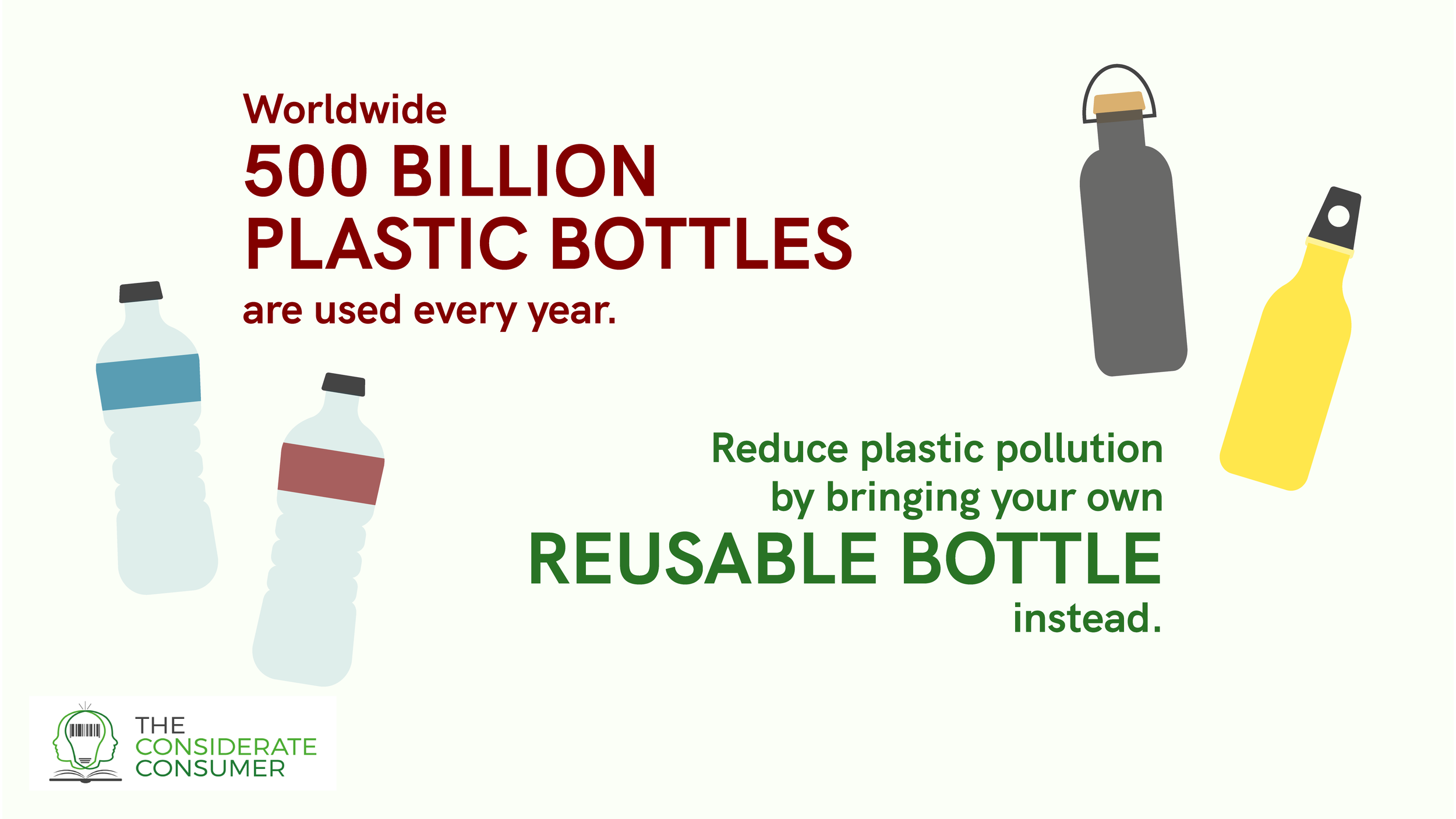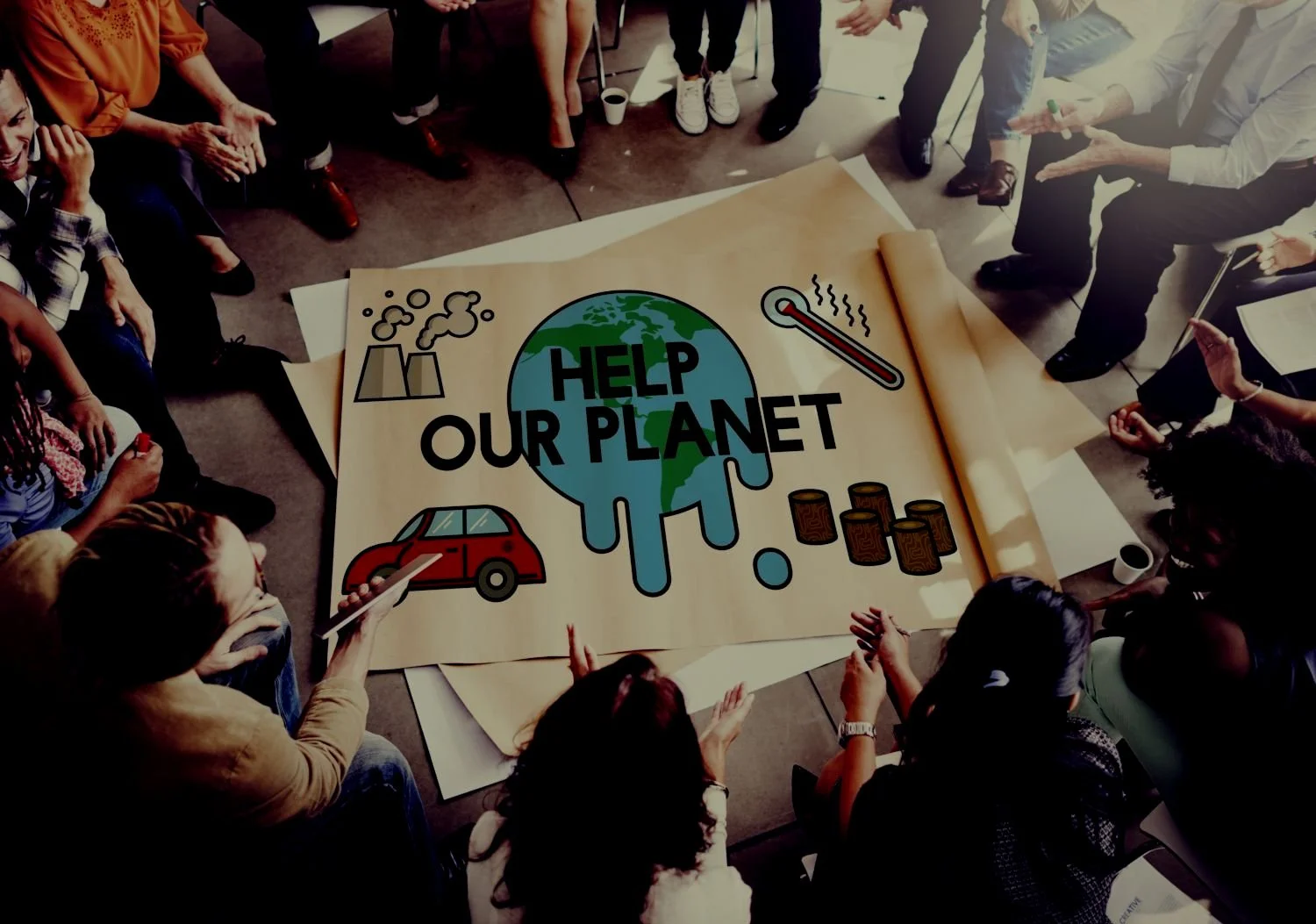October 2021
Many things that accompany us through everyday life are made for single-use, of plastic or packaged in plastic or, even worse, fulfil all three criteria - think of to-go cutlery.
We can replace some of these things with reusable alternatives.
This manual entry shows you a few everyday items you can easily replace and how and where to find them.
We also share a few ideas on how you can reuse single-use packaging.
REDUCE GENERATING WASTE
Most packaging and single-use items are made of plastic. And, there is no truly sustainable single-use or plastic item. The hard reality is that the most sustainable plastic is the one that is not produced.
Thus, follow the hierarchy of waste when it comes to making a decision for or against a purchase.
First of all, avoid single-use items and items made of plastic.
Buy less. Do you really need it?
Opt for quality over quantity. I.e. compare: Choose high-quality, durable virgin plastic products; think of Lego.
Prefer reusable items over single-use ones - for example, household items, cleaning supplies or cosmetic products.
Opt for recycled plastic, for example, fashion items.
And reuse and recycle what you have.
When it comes to packaging:
Bring your reusable packaging - for example, containers, boxes, and bags.
Watch out for alternative packaging - for example, edible packaging made from seaweed or leftover agricultural products.
How to avoid SINGLE-USE & plastic ITEMS?
Opt for alternative products with longer life cycles to reduce the amount of (plastic) items consumed.
But how to do so? And where do we find alternatives?
First, make it a habit to always have a reusable container and bag at hand. There are plenty of lightweight, foldable ones you can put in your handbag or click on your bunch of keys.
RECONSIDER YOUR PURCHASE DESIRE
Next step, when you are considering buying a single-use, plastic product or an item wrapped in plastic, ask yourself the following questions:
Do I need it? Maybe you have a comparable piece already somewhere on your shelf?
Is there a reusable alternative? A jar, instead of a tetra pack, a napkin made from cotton instead of paper, etc.
When getting food or a drink to-go, do I need it in a to-go container?
Should I wrap the piece of fruit or the bun in cling wrap, or do I have a (reusable) container for it? Does it need extra wrapping?
Wrap the gift in a nice gift wrapping when at home. You might already own suitable wrapping material. Here are some hands-on tips on beautiful, sustainable Gift Wrapping →.
CHOOSE THE REUSABLE ALTERNATIVE. But WHERE TO FIND REUSABLES?
Fortunately, nowadays, you can find sustainable alternatives in most places. You will be lucky to find such alternatives at physical and online stores.
Physical
Bulk stores and unwrapped stores.
Farmers markets.
Eco-friendly supermarkets or organic grocers.
Online
Second-hand platforms, such as German “Kleinanzeigen”.
Shops with a sustainability focus
Avocado Store – Germany
Oekofamilien – Denmark
Wearth London
The Zero Waste Shop – UK
Earth hero
The zero-waste shop
Plastic freedom
Boobalou
Monomeer (German only)
Etsy is an online marketplace with various independent sellers providing sustainable products.
REUSABLES
Check your cabinets and drawers - some of the below-listed items you might already own.
In the list below, you will find some common examples of reducing your single-use plastic consumption.
Cling Wrap → Beeswax wraps
Grocery store, online or DIYBottled water → Reusable water bottle & tap water*
AnywhereTo-go beverage → Travel mug *
Almost every café or store offering kitchen supplies onlineStraws & plastic cutlery → Bamboo or other types of reusable cutlery, edible cutlery
Grocery store, kitchen supplies, onlinePlastic produce bag → Non, reusable produce bag
Grocery store, online
Plastic shopping bag → Reusable bag
Grocery store, drug store, onlineBalloons, including string/holder → Bubbles, kites, paper ribbons and streamers, flags, tissue balls
Even though biodegradable balloons made from natural latex exist, they have been proven to not biodegrade under the industry standard of 12 weeks in an industrial composter.
DIY, online, decoration supplies, toy storesCigarette buds → Biodegradable cigarettes & filters
Online, selected storesSponges & dish clothes → Scrubbers & cloths made from natural fibres
Most grocery stores, online, DIYResealable plastic bags → Containers, silicon bags
Most grocery stores, onlinePlastic bag for freezing or trash → Biodegradable bag or container
Most grocery stores, online
Cleaning products → Bar soap, dissolvable cleaning pods
Online, selected storesToothpaste & mouthwash → Toothpaste/ mouthwash tablets
Drug stores, onlineSoap, shampoo, etc. → All exist in the form of bars
Grocery stores, drug stores, onlinePlastic cotton bud → Single-use cotton bud made from bamboo or paper or reusable cotton bud
Grocery or drug stores, onlineMenstrual products (tampons, pads) → Menstrual cups, reusable pads, period underwear, plastic-free products
Grocery or drug stores, onlineWet wipes, diapers → Washable cloth diapers, plastic-free and biodegradable diapers/ wet wipes
Grocery or drug stores, online, DIY
*invest in a product you love that matches your lifestyle so you will be more likely to use it.
ReUSING single-use & plastic ITEMS
When it comes to any product, making it last and taking care of it is key. Increase the life cycles of your single-use plastic items by repurposing them. Let us provide you with some examples for your inspiration:
Resealable takeout containers → Food storage (often even microwavable), make them transport boxes for leftovers or use them to organise your drawers.
Resealable plastic bags from nuts or chips → Food packaging for snacks on the go.
Soap, shampoo, & detergent bottles → Refill (use refill packs, bulk stores, or stations at local supermarkets).
Plastic bag packaging → Make them trash bags.
Yoghurt containers → Disposable cups for parties, vases and plant pots, storage containers if resealable.
Resealable food containers → Storing smaller items such as screws, hairpins or paperclips (the containers are often transparent, perfect to see what’s inside).
Drinking bottles → make them vases, use them to water your plants or store them for handcrafts with your kids.
As many plastic products come with labels, here are some tips on how to get them off:
Soak in water and scrub off using a steel sponge or brush.
Apply a mix of baking soda and oil and soak it. After about 15 minutes, the label should be peeled off easily.
Soak in alcohol for about 30 minutes and remove the label.
Disposal of single-use & plastic ITEMS
To dispose of it properly, get familiar with your local recycling rules.
We have put together a guide with some General Recycling Rules →. Please take a look, there is plenty to learn.
So what now?
To make it easier to start reducing your single-use items and plastic consumption, we have summarised some simple actions:
Reduce single-use plastic consumption and opt for reusables instead.
Bring a reusable water bottle.
Take a reusable bag when going shopping.
Choose to have your coffee or meal to stay or bring reusable containers.
Buy unpackaged foods.
Switch to soap and shampoo bars.
Reuse single-use items.
Get informed about local recycling rules.
For all of this, it is important to remember that nobody is perfect and avoiding plastic completely is impossible. Instead, focus on making the more sustainable choice whenever possible. We are stronger in numbers; one person avoiding plastic completely is less impactful than simply 10.000 reducing their single-use plastic consumption.
LEARN MORE
Check our sources: Bibliography →




















